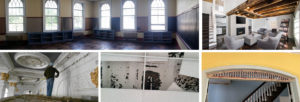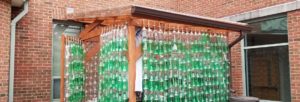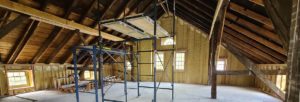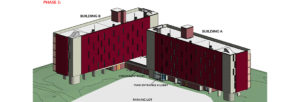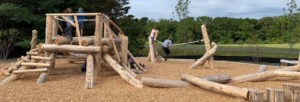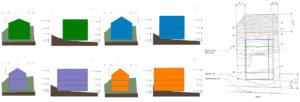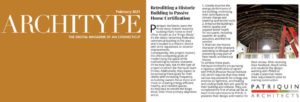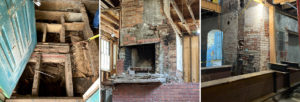Archiscape Blog
Hidden Historic Treasures: How to Find and Preserve Them
As our work has shown many times through the years, when renovating an older building there is often an opportunity to find, salvage, and restore elements of historic or architectural significance. We’ve also learned that sometimes we have to choose which part of a building’s history should be preserved, and which areas should be modified…
Linden Street Elementary School Courtyard Vision
As part of our office’s Community Outreach efforts, Jennifer Shea from our team has been collaborating with the Plainville Community Schools district by creating a connection with them and being a professional guide to some of their students. Previously, Jennifer had given their high school students a presentation on the architecture career path during their…
Need Excellent Thermal Performance? Try These Wall Assemblies
Thermal performance—the degree of energy transfer between a building and its surroundings—is an important consideration for every construction or renovation project. Not surprisingly, exterior wall assemblies play a major role in achieving the desired performance. At Patriquin Architects, we’re continually exploring new wall options to meet specific project conditions. Whether or not a client is…
King’s Block Passive House Retrofit: What’s the Latest?
Established in Europe more than 40 years ago, Passive House is a standard used in designing new buildings—or retrofitting existing ones—to be highly energy efficient. The standard requires that buildings be fully insulated and airtight, have high-performance windows, manage solar gain effectively, and utilize balanced recovery systems for heat and moisture, as well as a…
What Is Construction Sequencing and Why Is It Important?
Not surprisingly, construction and renovation projects are easiest to complete when a structure is unoccupied. However, in some cases, it is desirable or even necessary to maintain partial occupancy throughout a project. In those instances, careful sequencing of construction activities, open lines of communication, and effective collaboration are essential. Construction Sequencing and Multifamily Properties Sequencing…
How Does Collaboration Make Great Spaces Even Better? Find Out!
When a client entrusts Patriquin Architects with the design of their building, it is the beginning of a relationship—one that frequently continues beyond the completion of the initial project. Organizations grow and change over time, and their spatial requirements may evolve as well. For example, there may be a need to change a space from…
Why is a Feasibility Study Important to the Due Diligence Process?
Before investing time, effort, and capital into a building project, it is important for stakeholders to know whether the envisioned structure is feasible. Consequently, we’re frequently engaged to perform early feasibility studies. Often, we do this work before being hired for the full design phase, and in many cases, before the potential owner has fully…
Retrofitting a Historic Building to Passive House Certification
Our building renovation is featured in the February 2021 Architype Magazine! Check out the magazine and our article here.
Considering a Historic Renovation? Be Prepared to Pivot!
Building renovations often reveal unexpected conditions. When the structure being updated is historic and has a long history of alterations and modifications, the findings can be particularly interesting and produce unique challenges. We recommend exploratory demolition prior to starting construction. Sometimes this is not possible, other times the ‘typical’ condition that is exposed is not…
What Is Daylighting and Why Is It Important?
The term “daylighting” refers to architectural design that allows natural light into buildings. Daylighting provides many benefits, including increased productivity, enhanced connection to the outdoors, improved health, and energy savings. As a result, it’s highly desirable in educational settings. Numerous certifications for high-performance buildings feature daylighting as part of their rubrics. They cite daylighting as…

